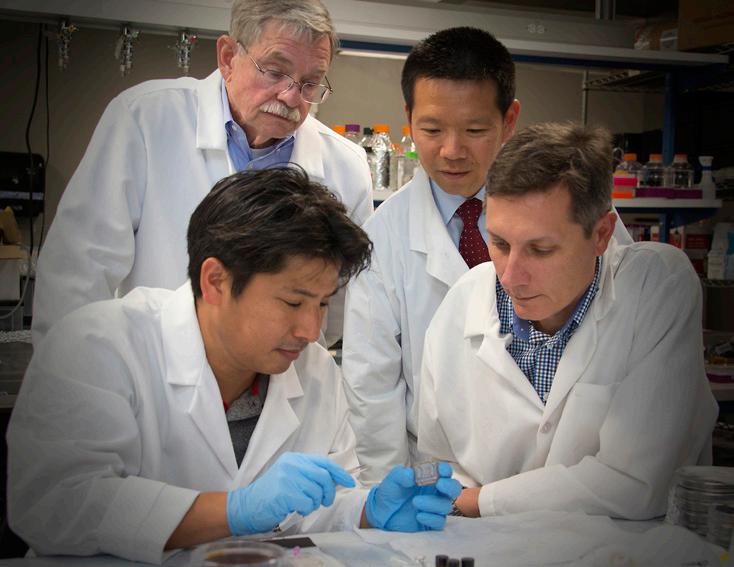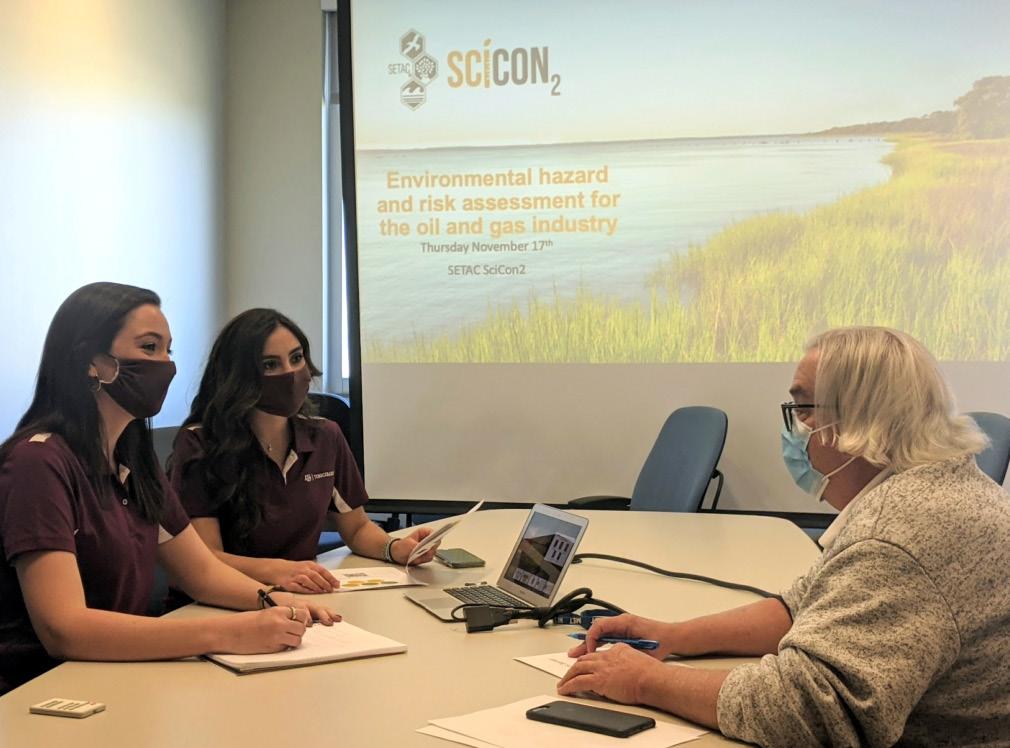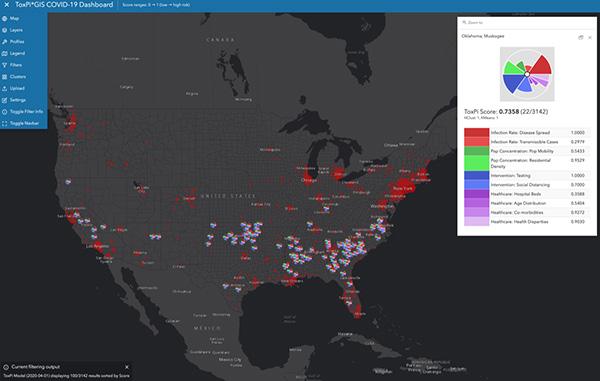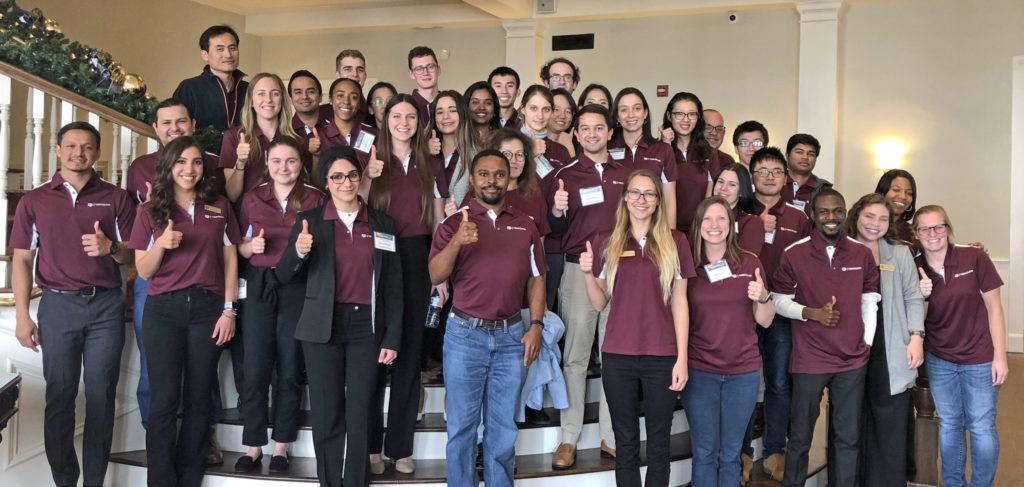
4 minute read
INTERDISCIPLINARY FACULTY OF TOXICOLOGY (IFT
Students will become familiar with certain aspects of hoofstock medicine including common diseases and preventative medicine. Students gain direct experience with many aspects of chemical immobilization including skills needed, drugs, and darting equipment.
African Wildlife Conservation and Health (Summer)
Advertisement
Led by Drs. Jim Derr, Walter Cook, and Linda Logan, this program takes students to Limpopo Province, South Africa, and Botswana to study the role of veterinarians in large landscape wildlife conservation medicine and develop skills to apply to wildlife health and sustainability issues across the State of Texas. Wildlife experts guide participants through activities including animal restraint, administering drugs, field surgery, and darting. Other experiential learning can include interaction with crocodiles, buffalo, and rhinos.
Thailand Global One Health (Summer)
This program led by Michelle Yeoman is a hybrid study abroad experience, incorporating four weeks of study abroad instruction with six weeks on campus in College Station. In this course, students use case studies to explore the connection between human, animal, and environmental health. The course is designed for undergraduate students who are interested in veterinary or human medicine, including public health, and wish to explore Global One Health issues. The students work with elephants, rescued sea turtles, and other exotic species at a sanctuary. Students and faculty visited the Doi Suthep temple in Chiang Mai, Thailand.
Current Research Projects
A number of CVMBS faculty have projects with international components. Each year, the CVMBS enters into new agreements with universities and research institutes around the world. CVMBS faculty collaborate on international programs with Texas A&M faculty from the Norman Borlaug Institute of International Programs and Development and the Institute of Infectious Animal Diseases (IIAD), as well as international organizations such as the United Nations' Food and Agriculture Organization (FAO) and the World Health Organization (WHO), in addition to the World Organization for Animal Health (OIE). Faculty have diverse sources of funding for their research projects, educational endeavors, and capacity development projects from private foundations, federal agencies, and international organizations that promote development, food security, and public health.
The IFT is a degree-granting graduate program that is composed of faculty from twenty Texas A&M departments in five colleges, three divisions of the Health Science Center, and three associated laboratories. Since 1989, the IFT has awarded over 50 MS degrees, nearly 200 PhD degrees, and two DVM/PhD degrees. In addition, well over 100 postdocs have trained in toxicology at Texas A&M University. The IFT is housed administratively at the CVMBS.
Training future generations of toxicologists in novel scientific discoveries should go hand-in-hand with ensuring that trainees develop a broad set of complementary competencies that span multiple disciplines from basic biology to exposure science, biostatistics, and epidemiology. In addition, trainees must understand how these data and knowledge are translated into decisions and policy. Areas of research include: Regulatory Toxicology & Public Health, Cellular & Molecular Toxicology, Reproductive & Developmental Toxicology, Behavioral & Neurotoxicology, Environmental & Veterinary Toxicology, and Applied Toxicology & Food Safety.
Highlights from FY20 include:
Awards/Accomplishments
• CVMBS PhD student, Hadil Al Muhisen, and alumnus Ziad Naufal establish Arab Toxicologists Association. • Texas A&M Wins $1.2 Million Diversity Grant. • Lauren Lewis was selected for a 2020 Texas A&M Association of Former Students (AFS) Distinguished Graduate Student Award. • Dr. Stephen Safe and Dr. Alexei Sokolov are recipients of the AFS Distinguished Achievement Award. • CVMBS Postdoctoral Researchers, Dr. Keshav Karki and Dr. Alyssa Meyers, have been recognized with 2020 Distinguished
Graduate Student Awards from the AFS.
Dr. Keshav Karki Dr. Alyssa Meyers

Dr. Robert Burghardt, Dr. Weihsueh Chiu, Dr. Ivan Rusyn, and Dr. Arum Han examine a tissue chip.

Toxicology students Alina Roman-Hubers and Alex Cordova lead the session with Dr. Thomas McDonald.
Research and Service Features
• Dr. Weihsueh Chiu talks about chemicals released during Intercontinental
Terminals Companies (ITC) fire not harming humans. • Dr. Ivan Rusyn completed service as chair of the International Agency for
Research on Cancer (IARC) Monographs working group on the Identification of Carcinogenic Hazards to Humans (Volume 125): “Some Industrial Chemical
Intermediates and Solvents.” • Dr. Ivan Rusyn was appointed to the Board on Environmental Studies and
Toxicology (BEST). • Dr. Stephen Safe has developed a family of pharmaceutical compounds known as C-DIMs, which could become a treatment for a variety of diseases. • Dr. Ivan Rusyn and Dr. Weihsueh Chiu, in collaboration with North Carolina State
University, have developed the Pandemic Vulnerability Index (PVI) Dashboard to map the global spread of COVID-19. • Dr. Weihsueh Chiu uses data science to bridge disciplines and protect health.
Video
• Alina Roman-Hubers, a toxicology graduate student, is featured in the Graduate
Programs at Veterinary Medicine and Biomedical Sciences at Texas A&M video. https://youtu.be/0kSMKOyrWpE
High Profile Publications
• Bhandari S., Lewis P.G.T., Craft E., Marvel S.W., Reif D.M., and Chiu W.A.
HGBEnviroscreen: Enabling Community Action through Data Integration in the
Houston–Galveston–Brazoria Region. Int. J. Environ. Res. Public Health 2020, 17(4), 1130; https://doi.org/10.3390/ijerph17041130
Primary author Sharmila Bhandari is a recent T32 Postdoctoral Fellow. This tool aids in identifying vulnerable communities and providing insights into which areas would most benefit from improved planning, policy, and action. • Grimm F.A., Klaren W.D., Li X., Lehmler H-J, Karmakar, M., Robertson L.W., Chiu
W.A. and Rusyn I. Cardiovascular Effects of Polychlorinated Biphenyls and Their
Major Metabolites. Environmental Health Perspectives 128:7, https://doi.org/10.1289/EHP7030
This study demonstrated a strategy to help fill data gaps and characterize human health risks from PCBs and their metabolites. • Tissue-Engineered Bone Tumor as a Reproducible Human in Vitro Model for
Studies of Anticancer Drugs (Sakolish and Rusyn). Paper was published as a
ToxSpotlight in Toxicological Sciences. https://doi.org/10.1093/toxsci/kfz220












